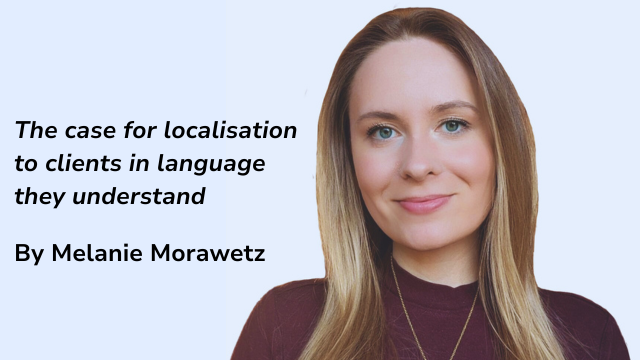-
QUALIFICATIONS
- For Linguists Worldwide
- For UK Public Services
- Preparation
- Policies & Regulation
-
MEMBERSHIP
- Join CIOL
- Professional Membership
- Affiliate Membership
- Chartered Linguist
- Already a member?
- Professional conduct
- Business & Corporate Partners
-
LANGUAGE ASSESSMENTS
- English
- All Other Languages
-
CPD & EVENTS
- Webinars & Events
- CIOL Conferences
- Networks
- CIOL Mentoring
-
NEWS & VOICES
- News & Voices
- CIOL eNews
- CIOL Awards
- The Linguist Magazine
- Jobs & Ads
-
RESOURCES
- For Translators & Interpreters
- For Universities & Students
- Standards & Norms
- CIOL & AI
- All Party Parliamentary Group
- In the UK
- UK Public Services
- Find-a-Linguist
The price of reassurance
By Karl McLaughlin
In the first of three stories from the "Pick of the conference" article in the latest issue of The Linguist, Karl McLaughlin speaks on translating press releases in emergency situations.
 In countries that rely heavily on tourism, a less obvious consequence of health-related emergencies and other crisis situations is the need for translation of press releases issued by the authorities. Governments are under pressure not just to keep the public fully informed of developments but – equally crucially – to offer constant reassurance to holidaymakers and expat residents, and limit the potential damage to the tourist industry caused by bad-news cancellations.
In countries that rely heavily on tourism, a less obvious consequence of health-related emergencies and other crisis situations is the need for translation of press releases issued by the authorities. Governments are under pressure not just to keep the public fully informed of developments but – equally crucially – to offer constant reassurance to holidaymakers and expat residents, and limit the potential damage to the tourist industry caused by bad-news cancellations.
The task of the translator is unenviable, not only because they work under the time pressure of super-fast turnarounds, but also because their exact words are likely to be repeated verbatim in the international media. The use of terms such as ‘lockdown’ (for Covid-19) or ‘evacuations’ (in the case of forest fires) needs to be considered very carefully if the actual measures adopted fall even only slightly short of such concepts. While the translator may think the terms are perfectly acceptable as appropriate equivalents, the government press office may well dispute their use and insist on more nuanced terminology.
An added complication with such media work is that all-too-familiar question of payment. You are asked to be available round the clock, or at least for an approximate window, for daily press updates. Invariably, however, these windows move or releases are revised/amended after you have submitted your translation and thus need to be redone. Initial discussions on the price of full availability lead to bemused reactions along the lines of “But we are only asking you to translate a few documents: it is not a whole day’s work.” You explain that you cannot accept other (potentially better paid) assignments during the crisis if you are expected to be checking emails constantly and translating newly arrived texts within minutes to ensure the English versions are received in time for the required foreign media coverage.
“Other translators are available” is a typical form of leverage, with no understanding that somebody who offers 24/7 availability and only charges for the actual words translated (potentially zero if no release arrives on a given day) may not be the ideal choice. No one would expect a plumber asked to be on standby all day for a week to charge just for the 10 minutes they spent fixing a leak!
At the CIOL Conference 2021, Karl McLaughlin will speak about media translation. See https://www.ciol.org.uk/ciol-online-conference-2021
Filter by category
More
The Chartered Institute of Linguists (CIOL), Incorporated by Royal Charter, Registered in England and Wales Number RC 000808 and the IoL Educational Trust (IoLET), trading as CIOL Qualifications, Company limited by Guarantee, Registered in England and Wales Number 04297497 and Registered Charity Number 1090263. CIOL is a not-for-profit organisation.








